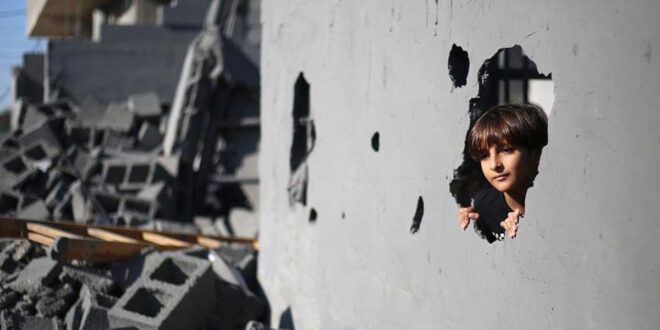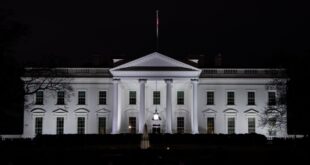Matthew Maavak
There is a well-worn rhetorical device deployed from Islamabad to Istanbul, echoed with minor variations across various Muslim-majority capitals: Kashmir is the Palestine of South Asia.
But what appears on the surface as a passionate defense of Muslim dignity is in fact a geopolitical sleight of hand — one that has shielded some of the worst crimes of omission and commission in the Islamic world, especially those committed by Israel in Gaza and the occupied West Bank.
The false equivalence between Kashmir and Palestine is not just outrageously misleading, it is strategically useful — particularly for Pakistan. It allows Islamabad to sustain its decades-old ideological confrontation with India while offering the illusion of principled alignment with the Palestinian cause. But in reality, it is a calculated diversion from the Islamic world’s glaring silence, and in some cases complicity, in Israel’s ongoing ethnic cleansing against the Palestinians.
The world has witnessed similar deflective tactics in places as diverse as Kosovo, Chechnya, Myanmar, Syria, Nigeria, southern Thailand, and the southern Philippines — the list is endless. Even Malala Yousafzai joined the recriminatory party at one point, from her safe haven in Birmingham, by reminding Myanmar activist and fellow Nobel Laureate Aung San Suu Kyi that the “world is waiting” for the latter to act over the Muslim Rohingya issue. Ironically, if there was a “Global Index on Minority Mistreatment,” Pakistan would be a serious contender for the top spot.
There is a militant-linked killing in Indian Kashmir every other month but here is a snapshot of major terror attacks in India which emanated from Pakistan since the year 2000.

I guess there is no better way to equate Palestine with Kashmir than by commissioning or condoning cross-border attacks on the more developed and democratic half of a truncated region, entailing heavy civilian casualties.
In this regard, one could argue that Pakistan acts more like a “Temu version of Israel” — a poor copy of the Middle Eastern bogey that claims victimhood after attacking its neighbours each time. (I am merely paraphrasing how Pakistani politician Bilawal Bhutto described Indian Prime Minister Narendra Modi)
A Manufactured Parity
Let’s be clear: Indian-administered Kashmir and Palestine are not interchangeable geopolitical tragedies. The history, legal frameworks, and development trajectories are vastly different. The profound tragedy, in fact, lies primarily on the Pakistani side of the Line of Control (LoC) separating both Kashmirs.
Indian Kashmir, which includes the enclaves of Jammu, Kashmir and Ladakh, spans 222,236 square kilometers with a population exceeding 13 million. Pakistani Kashmir includes Azad Jammu and Kashmir (AJK) and Gilgit-Baltistan covering roughly 85,793 square kilometers with a combined population of approximately 6.5 million. Conventional development indicators — in terms of infrastructure, education, healthcare, and per capita income — reveal a stark disparity which overwhelmingly favours the Indian-administered region. Here is a simple comparative table compiled from various credible sources.

In contrast to Indian Kashmir, Palestine remains a stateless, occupied territory subjected to blockades, bombings, and a systematic campaign of ethnic cleansing. There is no equivalence in terms of scale, intensity, or structural violence.
Moreover, while India faces criticism over its revocation of Article 370 — which traditionally afforded special rights for Kashmir — New Delhi does not carry out the kind of open-air massacres, aid blockades, and indiscriminate bombings that characterize Israel’s actions in Gaza. The ongoing genocide in Palestine is a holocaust with few 21st century parallels, except perhaps in Syria where the West, Israel and Turkey combined forces to reduce an otherwise secular Arab nation into an Al Qaeda-run hellhole.
The Kashmir-Palestine equivalence is not only preposterous and morally evasive, its persistence dovetails with the agendas of the “Anglo-Zionist” geopolitical axis.
China’s Neutrality
Even Pakistan’s close ally China carefully avoids drawing parallels between Kashmir and Palestine, consistently calling instead for bilateral dialogue. Beijing’s arms sales to Islamabad are driven less by ideological alignment and more by strategic calculations: the unresolved Sino-Indian border dispute and the importance of the China–Pakistan Economic Corridor (CPEC), a flagship Belt and Road Initiative (BRI) route.
However, the CPEC is no longer unique. China is now constructing multiple BRI arteries across Asia, Africa, and Europe, many of which may ultimately eclipse the strategic weight of the Pakistani corridor.
There are also no deep civilizational or cultural ties between China and Pakistan — a state carved out of British India in 1947. Their relationship is largely transactional and temporary. While Islamabad has leaned heavily toward Beijing in recent decades, it has not inspired China to act as its unconditional patron. By 2022, Pakistan had accumulated $26.6 billion in Chinese debt — more than any other country — locking it into a prolonged debt dependency which, in turn, fueled inflationary pressures across the country.
By contrast, the India–China relationship operates on an entirely different historical plane. Despite current border tensions, the two ancient civilizations share millennia of economic and cultural exchange. As I have argued previously, resolving the Sino-Indian border dispute is essential for realizing an “Asian Century.” Moreover, as the United States escalates its strategic containment of China, it is Beijing — not New Delhi — that now has the greater stake in realizing an Asian Century.
India’s reaffirmation of its role within the Shanghai Cooperation Organization (SCO) signals continued engagement with Eurasian security architecture. Its commitment to non-alignment should not be misread as indecision — it reflects a long-standing policy to safeguard sovereignty amid shifting global alliances.
A Convenient Distraction
Why, then, does Pakistan persist with the Kashmir-Palestine comparison?
Part of the answer lies in domestic politics. By projecting itself as the global defender of Muslim causes, Pakistan diverts attention from its own crises: economic collapse, political instability, institutional decay, and the military’s deep entrenchment in civilian affairs. A morally charged Kashmir narrative helps sustain a unifying myth of national identity rooted in grievance rather than governance.
But there is a broader geopolitical calculus at work. The more Pakistan insists that Kashmir is the Muslim world’s Palestine, the less oxygen is available for the actual Palestinian cause. In international forums, statements are diluted, attention divided, and momentum stalled. This rhetorical overload allows Arab states — many of which have overt or covert ties to Israel — to pretend that Muslim outrage is sufficiently distributed, that Palestine is just one of many unresolved disputes. This serves Israeli interests perfectly.
Indeed, the silence from many Muslim-majority nations over Israel’s recent atrocities in Gaza has been deafening. The brief outrage expressed by various foreign ministries was akin to diplomatic weasel words. Some regimes have even banned pro-Palestine protests or muted their condemnation to avoid displeasing Washington or Tel Aviv.
Into this silence, Pakistan inserts its Kashmir refrain, muddying the waters further and diffusing what should be a unified and urgent moral indictment of Israeli war crimes.
The ‘Islamic Bomb”
Nations aspire to nuclear weaponization solely for the purpose of deterrence and to maintain a measure of sovereignty. Nothing more. There is nothing religious about such weapons. In fact, the Ayatollahs of Iran have deemed nuclear weapons to be sinful. A future Iranian government can only justify nuclear deterrence as a matter of national survival.
In Pakistan however, state propaganda filters everything through an Islamic lens, including nuclear weapons. The late Pakistani Prime Minister Zulfikar Ali Bhutto once vowed that his countrymen “will eat leaves and grass, even go hungry” in their efforts to acquire nuclear weapons. He famously portrayed the nuclear bomb in religious terms:
“There’s a Hindu bomb, a Jewish bomb and a Christian bomb,” Bhutto once wrote. “There must be an Islamic bomb.”
Pakistan eventually got its “Islamic bomb” — more than 170 nuclear warheads, by some estimates — yet none have ever dared neuter the so-called “Jewish bomb.” Curious, isn’t it? Israel has never seemed particularly worried about Pakistan’s nuclear arsenal, even as Tel Aviv continues its airstrikes and shadow wars across the Muslim Middle East. One well-placed Pakistani nuke, even detonated high above Israeli airspace, may technically cripple the entire Israeli defense apparatus. And still, Israel remains strikingly unshaken.
The original rationale behind the “Islamic bomb” was to provide a protective umbrella for the dispersed ummah — the commonwealth of Muslim believers. That nuclear narrative has since been rebranded as being India-specific only as Pakistan does not have the geopolitical and military spine to protect the ummah. All it can manage is stoke militancy in Indian Kashmir.
Incidentally, Zulfikar Ali Bhutto was eventually hanged by the very Islamist general he had promoted to the hierarchy of the Pakistani military. Gen Zia ul-Haq — the general concerned — earlier played a pivotal role in crushing the Black September uprising in Jordan (1970-71) which according to PLO supremo Yasser Arafat, had resulted in the deaths of 25,000 Palestinians.
So much for the Palestine-Kashmir equivalence!
Unequal Realities, Hidden Motives
A closer look at facts further punctures the Kashmir–Palestine parallel.
Indian-administered Kashmir has seen sustained development even amidst conflict. It has a functional civil administration, a growing tourism industry, and one of the highest literacy rates in the Indian union. Major infrastructure projects like tunnels, railways, and highways have enhanced regional connectivity. Educational institutions, including the prestigious AIIMS-level medical facilities and central universities, operate across the region. India’s Supreme Court and independent press, while imperfect, provide recourse and visibility.
The contrast between both Kashmirs reflects a wider chasm between the fourth largest economy in the world and a nation consistently ranked high in the fragile states index.
No, Gaza cannot be equated with Indian Kashmir by any stretch of logic. Israeli bombardment in Gaza has flattened entire neighborhoods, destroyed hospitals and schools, and left more than 37,000 people dead — mostly civilians, many of them children. Blockades have denied medicine, food, fuel, and water to millions. The international humanitarian apparatus has been systematically undermined, and journalists targeted with impunity. No such reality exists in Indian Kashmir — not even remotely.
And yet, Pakistan persists with the Palestine analogy, not because it’s accurate, but because it provides ideological cover and regional leverage. It also conveniently deflects scrutiny from Pakistan’s own human rights record — from Balochistan disappearances to enforced conversions of minorities to the stifling of dissent in Gilgit-Baltistan.
Personally, I am convinced that Pakistan’s blood-stained obsession with Indian Kashmir is partly dictated by forces external to the region. Global Jihad Inc. is not headquartered in Islamabad, Doha or Riyadh, but rather in Washington, London and Tel Aviv. There are hints that the BRICS hierarchy is now paying closer attention to foreign ministry officials, think tankers and academics in the Muslim world who continue to push the Kashmir-Palestine false equivalence. These will have to be sidelined in a future Eurasian compact.
The Next Flare-Up?
When the next India–Pakistan war breaks out — and it will — watch closely for what Israel might be orchestrating in parallel. The recent Pahalgam massacre in Indian-administered Kashmir, followed by a brief four-day war in May, unfolded right before Israel launched a sudden and unprovoked strike on Iran. Coincidence?
Curiously, the Indo-Pak conflict remained short-lived, despite Pakistan being buoyed by suspiciously-timed multibillion-dollar bailouts from the IMF and World Bank. One might ask: who pulls the strings at these institutions?
Had both crises escalated in tandem, Pakistan’s long-standing effort to equate Kashmir with Palestine could have gained dangerous legitimacy on the world stage. But major conflicts rarely happen in isolation, and there is always a next time.
 Geostrategic Media Political Commentary, Analysis, Security, Defense
Geostrategic Media Political Commentary, Analysis, Security, Defense






You must be logged in to post a comment.